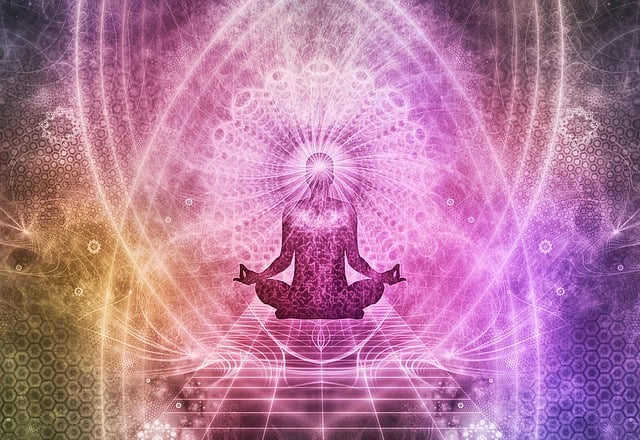
Have you ever wondered how long it takes to learn Reiki healing? If you’re curious about this fascinating practice, you’re in the right place! In this article, we’ll explore the topic of learning Reiki healing and provide you with all the details you need to know. So, if you’ve been intrigued by the idea of harnessing healing energies and want to find out how long it might take, keep reading!
Learning Reiki healing is a unique and personal journey, and the time it takes to become proficient can vary from person to person. Some individuals may experience a natural affinity for Reiki and quickly grasp its concepts and techniques, while others may require more time and practice. It’s important to remember that there is no set timeline for learning Reiki healing, but with dedication and perseverance, you can make significant progress. In the next sections, we’ll delve into the different levels of Reiki, the training involved, and some tips to enhance your learning experience. By the end of this article, you’ll have a better understanding of what to expect on your Reiki healing journey. So, let’s get started! Reiki healing has gained popularity as an alternative therapy for promoting relaxation, reducing stress, and improving overall well-being. Many individuals are drawn to the practice of Reiki and wish to learn it themselves. However, before embarking on this journey, it is important to understand the time commitment involved in learning Reiki.
Understanding Reiki Healing
What is Reiki healing?
Reiki is a Japanese form of alternative therapy that involves the transfer of healing energy through the hands. The word “Reiki” can be broken down into two parts – “Rei” meaning universal or higher power, and “Ki” meaning life force energy. Essentially, Reiki healing involves tapping into this life force energy to promote healing and balance within the body.
The principles of Reiki healing
Reiki healing is based on a set of principles that guide practitioners in their approach to healing. These principles include:
- Just for today, I will not anger: This principle encourages individuals to let go of anger and cultivate a sense of inner peace.
- Just for today, I will not worry: It emphasizes the importance of staying present and letting go of unnecessary worries.
- Just for today, I will be grateful: This principle encourages individuals to appreciate the blessings in their lives.
- Just for today, I will do my work honestly: It emphasizes the importance of integrity and commitment to one’s work.
- Just for today, I will be kind to every living thing: This principle promotes compassion and empathy towards all living beings.
Getting Started with Reiki
Finding a reputable Reiki teacher
When starting your journey into learning Reiki, it is important to find a reputable and experienced Reiki teacher. A teacher plays a crucial role in guiding you through the learning process and ensuring you understand the principles and techniques of Reiki. Look for recommendations, read reviews, and ask potential teachers about their experience and training.
Choosing the right Reiki healing course
There are numerous options available when it comes to Reiki healing courses. It is important to choose a course that suits your learning style and goals. Some courses may be more focused on self-healing, while others may place more emphasis on healing others. Take the time to research different courses and find one that aligns with your interests and needs.

Length of Reiki Healing Courses
Different duration options for Reiki courses
The duration of Reiki healing courses can vary greatly. Some courses may be completed in a single day, while others may span over several months or even years. The length of the course often depends on the level of training you are pursuing and the intensity of the training program.
Factors that affect the duration of learning Reiki
Several factors can influence the duration of learning Reiki. These include:
- Level of training: Reiki training is typically divided into three levels – Level 1, Level 2, and Master/Teacher level. Each level requires a certain amount of training and practice to master the techniques and principles.
- Personal commitment: The time and effort you are willing to invest in learning Reiki will greatly impact your progress. Regular practice and dedication are essential for fully grasping the concepts and techniques.
- Learning style: Some individuals may grasp Reiki concepts and techniques more quickly than others. The duration of the course may vary based on individual learning styles and abilities.
Level 1 Reiki Training
Basics of Level 1 Reiki training
Level 1 Reiki training is the foundation level of Reiki healing. During this training, you will learn the basic principles and techniques of Reiki, including hand positions for self-healing. The duration of Level 1 training can range from one day to a few weekends, depending on the course structure.
Learning hand positions and self-healing techniques
In Level 1 Reiki training, you will learn the hand positions used for self-healing. These hand positions involve placing your hands on different areas of your body to channel healing energy. You will also learn various techniques to promote self-healing and relaxation.

Level 2 Reiki Training
Advanced techniques in Level 2 Reiki training
Level 2 Reiki training builds upon the foundation established in Level 1. During this training, you will learn advanced techniques such as using symbols for distant healing and emotional healing. Level 2 training typically takes longer than Level 1, as there is more complexity involved in the techniques.
Using symbols and distant healing methods
Symbols play a crucial role in Level 2 Reiki training. These symbols are visual representations of specific healing energies and can be used to direct healing energy to individuals or situations that are not physically present. You will also learn techniques for emotional healing and working with the subconscious mind.
Master/Teacher Level Reiki Training
Becoming a Reiki Master
Master/Teacher level Reiki training is the highest level of training in Reiki healing. It prepares individuals to become Reiki Masters and teach others the art of Reiki healing. Master level training involves an in-depth understanding of the principles and techniques of Reiki, as well as the ability to attune others to Reiki energy.
Training others in Reiki healing
Once you have completed Master level Reiki training, you will have the knowledge and skills to train others in Reiki healing. This involves conducting workshops, attuning individuals to Reiki, and guiding them on their own Reiki journey.

Time Commitment for Reiki Training
Understanding the required practice time
Learning Reiki requires not just theoretical knowledge but also practical application. To fully grasp the principles and techniques of Reiki, regular practice is necessary. The amount of time you dedicate to practice will greatly influence your progress.
Balancing Reiki training with other commitments
It is important to find a balance between your Reiki training and other commitments in your life. While learning Reiki can be a fulfilling and transformative journey, it is important to ensure that it does not become overwhelming or take away from other aspects of your life.
Progression in Reiki Learning
How long to advance from one level to another
The duration of advancing from one level to another in Reiki learning can vary from individual to individual. It depends on factors such as the time and effort you dedicate to your practice, as well as your personal growth and development. Some individuals may progress quickly, while others may take longer to fully integrate the principles and techniques of Reiki.
Personal growth and development in Reiki
Learning Reiki is not simply about acquiring knowledge and skills. It is also a journey of personal growth and development. As you continue to practice Reiki and delve deeper into its principles, you may experience profound shifts in your own life, gaining a greater sense of self-awareness and spiritual connection.

Integration and Application of Reiki
Incorporating Reiki into daily life
One of the greatest benefits of learning Reiki is the ability to incorporate it into your daily life. Whether it is through self-healing practices or using Reiki on others, Reiki can become a valuable tool for promoting balance and well-being in all aspects of your life.
Using Reiki for healing others
Once you have gained confidence in your Reiki skills, you can use them to provide healing to others. Whether you choose to offer Reiki treatments professionally or simply use it to help family and friends, the ability to bring healing and comfort to others is a powerful gift.
Conclusion
Reiki learning is a personal journey
The length of time it takes to learn Reiki healing varies for each individual. It is important to remember that Reiki learning is a personal journey, and there is no set timeline for mastery. Allow yourself the time and space to fully immerse yourself in the practice, and trust in your own intuition and abilities.
Time to learn Reiki varies for each individual
The time it takes to learn Reiki can range from a few months to several years, depending on the individual’s commitment, dedication, and previous experience. The most important aspect of learning Reiki is to approach it with an open heart and mind, embracing the transformative power of this ancient healing practice. So, take your time, trust the process, and enjoy the beautiful journey of Reiki healing.











